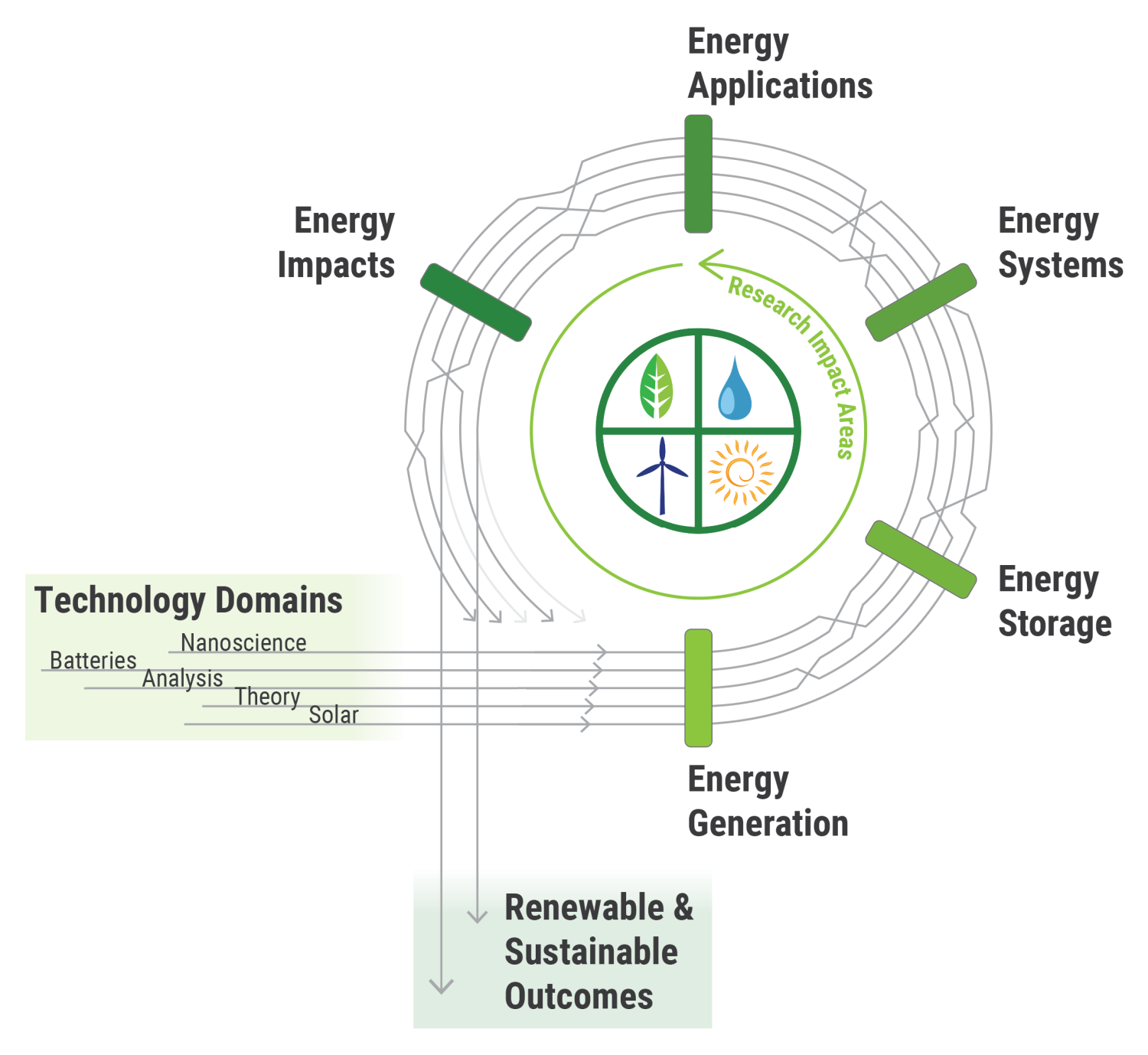Our Research
The development of clean, robust, and secure energy generation and the electrification of processes and systems represents one of the most significant technological undertakings of our time. These energy systems are inherently complex, with technological, economic, social, and policy dimensions that are deeply interconnected. Advances in one area, whether in materials science, grid integration, or energy policy, create ripple effects across the entire system. Such advances also offer tremendous opportunities for innovation, economic growth, workforce development, and energy security. Addressing these multifaceted challenges requires bringing together diverse expertise and perspectives. As a research institute, RASEI serves as the connective tissue between disciplines, fostering collaborations that tackle problems no single investigator, or scientific field could solve alone.
RASEI serves as a central hub, connecting researchers from universities, national labs, and industry to tackle these complex problems together. We have organized our research using an interwoven matrix approach, focusing on key Impact Areas: Energy Generation, Energy Storage, Energy Systems, Energy Applications, and Energy Impacts. Researchers in the RASEI community employ a range of tools and technologies to develop solutions in these different impact areas, which we call Technology Domains, from materials science and computational modeling to techno-economic analysis, societal impact, and circular systems. This structure allows our researchers to work flexibly across different topics and ideas, whether a materials scientist is developing better batteries, or a policy expert is studying electric vehicle adoption patterns.
By bringing together researchers from different fields, RASEI is building an environment where breakthrough solutions can emerge from unexpected connections. When a materials scientist collaborates with an economist, or when an engineer works alongside a policy researcher, they develop more comprehensive and practical approaches to energy challenges. These intersectional relationships and ideas are the basis for new ideas in RASEI. This cross-pollination of ideas and perspectives is essential for creating solutions that don’t just work in the lab but then succeed in the real world.
Impact Areas
Research in RASEI spans the entire energy journey, from generating clean electricity to the way society uses it. We have organized this work into five research Impact Areas to help navigate our diverse projects, though in practice most of our interdisciplinary research crosses multiple areas, reflecting the interconnected nature of real-world energy systems.
Technology Domains
Members of the RASEI community bring together an impressive range of expertise and approaches to tackle clean energy challenges. Our community includes social scientists, business experts, physical scientists, and engineers. Some teams work hands-on in laboratories, while others use advanced computational models to explore fundamental physics or simulate global wind patterns. This diverse suite of expertise is reflected in our Technology Domains, which span areas like solar power, nanoscience and advanced materials, building efficiency, grid innovation, and technology adoption analysis.

How we work together
The research Impact Areas represent the energy challenges we want to solve, while the Technology Domains are the different tools and expertise we use to tackle them. RASEI creates a collaborative environment where these approaches naturally combine, solar experts might work with materials scientists on better panels, or policy researchers might partner with engineers on grid solutions. Ideas and discussions flow freely across the institute, so new discoveries in energy storage might spark new thinking about building efficiency, or insights from community energy projects might influence how we approach large-scale energy generation. This ongoing exchange of knowledge creates a constructive feedback loop where each project informs and improves the next, accelerating progress across all our work.


